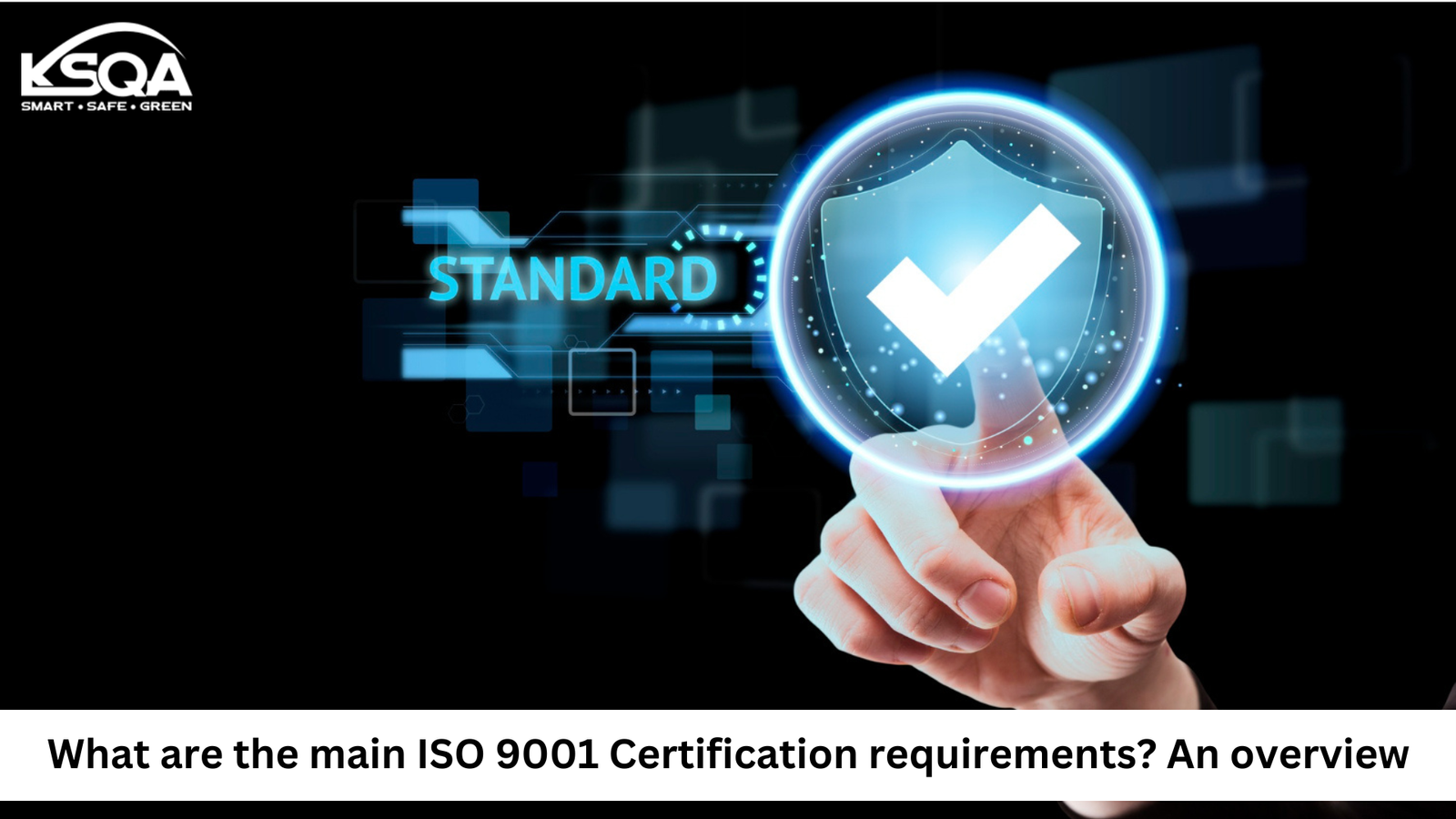A competitive business environment requires people and organizations to strive for the best and not the ordinary. ISO 9001 is an international standard on quality management systems that seeks to enable organizations to better their performance, satisfy their customers, and establish a quality management system.
Yet, for many organizations, a primary concern prevents them from undertaking the implementation due to ISO 9001 certification costs and whether it is worth investing.
To help clarify, in this blog we will look at some of the benefits of ISO 9001 certification that can justify the costs of attaining. Also, we will explore the different costs associated with it.
Reluctant to Invest in ISO 9001 Certification? Find Out Benefits Of It That Might Change Your Perception
Businesses with the help of KSQA in different industries around the world derive many advantages from obtaining ISO 9001 certification. Let’s explore the benefits of ISO 9001 certification:
Improved Customer Satisfaction: ISO 9001 provides guidance on the measures that organizations can use to improve the quality of services and products. When companies understand the needs and wants of customers, they can enhance customer satisfaction and foster better business customer relations.
Increased Efficiency and Productivity: It promotes the right structures for management, processes, and efficiency in their operations from independent certification. This efficiency decreases waste, increases the rate of success, and, in general, increases productivity.
Enhanced Marketability and Competitive Edge: Currently, ISO 9001 has become an international standard. Certification can set a business apart from others, giving the potential clients and partners an assurance of quality, which can be an advantage.
Better Risk Management: The standards of ISO 9001 ask for the recognition and control of the risks related to the business processes. This allows for the prevention of risk situations that may occur before they develop into genuine problems for the business, its reputation, or its assets.
Improved Employee Morale and Engagement: Proper implementation of the quality management system means better structure and improved conditions in the workplace. People become more productive and dedicated when they know what is expected of them and the benefits that come with performing those tasks.
Continuous Improvement: An important aspect of ISO 9001 as a framework is the constant evaluation of the flow of processes. This culture of optimized and constant perfecting stimulates creativity and assists businesses in adapting to trends and changes in the industry.
Better Documentation and Record-Keeping: Certification implies documentation of processes, procedures, and responsibilities down to the last detail. It helps in the management of records, which is important for auditing and compliance as well as standardization of operations.
Stronger Supplier Relationships: A key component of ISO 9001 is to have general guidance on how to select and evaluate suppliers. It advances the probability that suppliers will be able to supply products of requisite quality, hence improving relations.
Regulatory Compliance: A lot of companies and organizations need to adhere to numerous rules and regulations. Through its implementation, it facilitates the compliance of businesses with these laws, hence avoiding penalties.
In summary, the benefits of ISO 9001 certification enable businesses to develop and establish a structure that would improve quality, productivity, and customer satisfaction, leading to growth and success. KSQA stands with businesses to help in ISO 9001 certification without any difficulties.
What ISO 9001 Certification Costs Make Businesses Reluctant To Invest In It?
A major aspect of the implementation process is ISO 9001 certification cost, which remains a major concern for many organizations due to budget constraints that approach KSQA for certification.
Here’s a breakdown of the key ISO 9001 certification costs that can contribute to this reluctance:
Certification Fees: The initial certification fee is one of the most transparent costs. This fee differs with the size and type of the organization and is paid to the certification body. It deals with the evaluation and review of the organization to check whether it complies with ISO 9001 requirements.
Consulting Fees: It is common for many businesses to look for the services of external auditors in an effort to prepare for certification. It is important to note that getting consultants who will assist the company in the implementation of the ISO 9001 standards will be expensive. These fees can form a high percentage of the overall cost.
Training Costs: According to ISO 9001, the employees should be trained on the principles and practices of quality management. They may include the cost of the course, the cost of materials, and possibly transportation in case the training is done outside the company.
Internal Resource Allocation: The preparation for ISO 9001 can sometimes entail the commitment of internal effort in terms of time and human capital to establish new procedures and structures. This can take resources away from other essential business processes and can result in other overhead expenses.
Process Improvement Costs: Applying changes by means of implementing ISO 9001 may also mean purchasing new software, improving technology, or procuring new tools and equipment. These improvements can sometimes require significant capital expenditures.
Ongoing Compliance Costs: ISO 9001 requires periodic assessments and audits to be done to ascertain whether the company is still compliant with the requirements of the certification. These include the costs for surveillance audits and the ongoing costs for quality management disciplines.
Document Management Costs: ISO 9001 recommends detailed documentation of activities, practices, and documents. Maintaining this documentation—whether electronic or on paper—may also come with other costs.
Cost of Non-Compliance: In case a business does not conform to the ISO 9001 standards after completing the certification process, the business may incur extra costs that would be used in the correction of non-conformities as well as the fees charged for a reaudit.
Despite these ISO 9001 certification costs, the majority of businesses partnering with KSQA have recognized that the gains ISO 9001 certification brings in terms of quality, customer satisfaction, and efficiency are worth the expenses.
Conclusion
Despite costs like fees, consulting, and training that are associated with ISO 9001 certification, the subsequent and prospective benefits of ISO 9001 certification, like enhancement of customer satisfaction, efficiency, and marketability of the product, cancel out these costs.
Spending on ISO 9001 certification costs could indeed be used as a tool to achieve sustainable business and overall organizational efficiency, thus making the investment worthy for a number of organizations.
Want to enhance your company with ISO 9001 certification? For your ISO 9001 certification needs, KSQA can help you connect with someone who provides consulting services that guide you through the certification and accreditation process strategically. Call us today!



.webp)

.jpg)
.jpg)
